- Home
- Blake Banner
Knife Edge (A Dead Cold Mystery Book 27) Page 6
Knife Edge (A Dead Cold Mystery Book 27) Read online
Page 6
“Sure, but what happens if Lee insists? What if Lee had, as Mitchell suggested, an accomplice—an older person who is egging him on, pressuring him? What if he keeps coming back to Mitchell, telling him he has more evidence of his infidelity? Or evidence of some sort that could jeopardize the future clinic? And what if he will not desist? What if Leroy’s emotional problems are eating away at their happy family? What if the Mitchells are seeing their idyllic setup slowly crumbling under Leroy’s relentless assault?”
“Jesus, Stone…”
I drove in silence for a moment, with the leafy suburban street drifting by outside.
“It only takes the smallest variation in her story for it to work,” I said. “The kids are screaming and shouting out in the yard. That’s something Marcus and Lea never did before. Maybe Lee has hurt Lea in a fight, and Brad, who has had his fill of Lee, goes out into the yard and bursts into the shed. I don’t know what he finds there, but it’s enough to drive him into a rage. I don’t want to dot the Is and cross the Ts, because I am not proposing this as a theory. All I am saying is that given enough of the right provocation, I can see Brad doing something crazy and justifying it as protecting his family.”
She puffed out her cheeks and blew. “Hell, I guess you’re right, but...”
“I’ll tell you something else I am not one hundred percent convinced about.”
She turned to face me. “That Mitchell and Wagner never hit the sack together?” I nodded. “Yeah,” she sighed unhappily. “I guess you’re right about that too.”
Seven
Dehan called the chief and told him we needed to talk to him. When we got to the stationhouse we climbed the stairs to his office and rapped on the door. Inspector John Newman was sitting behind his desk and laughed as we came in, as though we had made a comic entrance. “Ah!” he said, “The dynamic duo! How are we? John, Carmen! Please, sit.”
We sat, and he sat beaming at us. I half expected him to get up and start mixing drinks. Instead he said, “What can I do for you?”
“This morning we received new evidence on the Mitchell case.”
He frowned. “Mitchell, rings a bell…”
“2014, six years ago, a girl and her adoptive brother murdered in a garden shed in their backyard. Parents were inside having breakfast, but came out when they heard screams. They found the kids, one with her throat cut, the other stabbed in the back. A third kid, the girl’s natural brother, was found hiding under a tarpaulin. He went into catatonic depression and has not spoken since.”
He’d started nodding when I mentioned the kids in the shed. Now he said, “Yes, I recall something. You have received new evidence? Any good?”
“We’re not sure yet, but we have spoken to both parents.”
“They were, if I recall, academics? Liberals, active in the community…”
Dehan answered. “She’s a doctor of sociology. He’s a doctor of psychology. They are both Dr. Mitchell, so they never know which one you’re talking to. You say, ‘Dr. Mitchell!’ And they both go,” she made an idiot face, “‘What? What?’”
Chief Newman gave an indulgent chortle. “So what was the new evidence?”
I said, “That the adoptive child, Leroy, had been attempting to blackmail Dr. Brad Mitchell. He claimed to have information and photographs that showed Brad was having an affair. That information, at this stage, seems not to have much substance. But after talking to both the Mitchells, and the alleged lover…”
Dehan cut in, “Another doctor, also of psychology, she runs Brad Mitchell’s clinic in White Plains.”
I nodded. “Right, after having spoken to all three of them, and seen the house where the murder took place, the problem we have is this:” I shrugged and spread my hands. “It seems the only people with opportunity to kill the kids are either Emma Mitchell, Brad Mitchell, or both of them. They also have means, and, if there is anything in this blackmail story, Brad Mitchell might have had motive too. The only other possibility is that there was a sixth person in the house, and for some reason the Mitchells are protecting him.”
He blinked at me a few times. “Yes, I see. The two parents and the three children, and then a sixth person.” He gazed at the ceiling a moment. “That’s unlikely though, isn’t it?”
Dehan answered. “I don’t know if it’s unlikely, sir, but so far there is absolutely nothing to indicate there was anybody else there, and we have no candidates to be that sixth man.” She glanced at me and made a gesture of mild helplessness. “All we have is a pretty weak possible motive in the blackmail angle.”
The chief gazed at her a moment and explained, as though to himself, “It might just explain his killing Leroy, but it does not explain his killing Lea, his own flesh and blood.”
“Exactly.”
He looked at us both in turn. “So, what do you want from me?”
I answered. “We have one witness. Only one. And that is Marcus Mitchell, who is currently locked in his room suffering from chronic catatonic depression. He is not receiving treatment and his mother will let nobody go near him but his nurses and his father. Apparently they employed several therapists in the beginning, but when those therapists tried to help him work through his experience, she fired them.”
His eyebrows rose up on his forehead. “So she has him trapped in this catatonic state?”
Dehan said, “That’s about the size of it. You have to wonder if she is just being overprotective, or if it suits her that the only witness is mute.”
He grunted, picked up his pen and examined it for a moment, then put it down like it was less interesting than he had expected it to be.
“So you want me to seek a court order compelling the Mitchells to give you access to Marcus.”
I shook my head. “No, I want a court order compelling her to allow Marcus to have appropriate therapy, as dictated by the court, on the grounds that, A, he has evidence crucial to the investigation of his brother and sister’s murder, and B, that his parents have proved incompetent in providing him with appropriate therapy. Catatonic depression is not an incurable disease. This happened over six years ago; he should at least be talking by now.”
He drummed his fingers on the desk and chewed his lip.
“These are influential people, in their own way. They are active politically, behind the scenes. Don’t be fooled by the fact that they live in the Bronx. They have friends in the liberal community who wield quite a lot of power.”
Dehan gave a cynical grunt. “Beautiful real estate at a fraction of the price it would cost anywhere else, it bolsters your credibility as a person of the people and at the same time, as the area becomes gentrified, you make a killing on your investment.” She arched an eyebrow. “They may invest in Bronx realty, but they work and dine in Manhattan.”
“Quite so. All right, I’ll see if I can dig up a sympathetic judge. I might get you access, but for anything more there will have to be a hearing…”
I nodded. “I know. Maybe the threat of that will be enough.”
“Let’s hope so. I’ll let you know as soon as I have an answer.”
It was our cue to go and we went downstairs and took a stroll through the cold afternoon light to the deli on the corner. We walked in silence as far as Banyer Place. Then Dehan stopped and said, “OK, let’s be a bit lateral.” I made a question with my face and showed it to her. She ignored it and went on. “Let’s just suppose for a moment that you were right.”
“It has been known, Dehan.”
She ignored me some more. “Let’s suppose there is a connection between the killing of Leroy’s parents, with a knife, like you said, and the killing of Lea and Leroy. What…?” She made horizontal circular motions with her hands and hunched her shoulders. “What is that connection? How does that work? What were you thinking when you said that?”
I smiled and we started walking again. “It’s not just the knives. Have you read the Brown file?”
“I haven’t had time. We only picked up the case this mo
rning, Stone.”
“Well, I’ve only glanced over it, but a couple of things stand out as noticeable parallels. Obviously the murder weapon is the first thing. Statistically it is comparatively rare, but that Leroy’s parents should be killed with a knife, and then he should, that is a statistical anomaly.”
“OK, that’s the first thing, what else?”
We came to the corner deli and stopped.
“In both cases there were two victims, one male and one female, and in both cases there was a traumatized child—the brother of the female victim—left behind.”
She was frowning hard. She turned that frown toward the Bruckner Boulevard for a while and then screwed up her eyes at me.
“I mean, that’s true, Stone. And it is weird.”
“Remarkable.”
“OK, remarkable, but it doesn’t mean anything. Does it? What can it possibly tell us about either crime?”
There was an icy breeze creeping down Fteley Avenue and she stamped her feet and jumped up and down a couple of times. I shrugged and moved toward the deli door. “I’m not sure,” I said, and pulled the door open for her, “but I don’t buy that it’s just a coincidence.”
“You think it’s the same killer? I thought it was established that they killed each other.”
I shook my head and followed her in. “No, it’s not the same killer, but I am damned sure they are connected.”
We bought pastrami on rye and roast beef on whole wheat, and two double espressos, then walked slowly back toward the stationhouse with the cold breeze creeping into our ankles and down the back of our necks.
“The killings are connected somehow,” I said.
“How? In what way? If it’s not the same killer, what then?”
I didn’t answer for a while, thinking over her questions. Eventually I smiled at her and said, “Maybe…” I shrugged. “I don’t know. I can’t put it into words yet. I guess I just think that, while we wait for the chief to get back to us, it would be a good idea to look into what happened in that first murder. Let’s just say for now that the roots of the second killing might well be in the first one.”
She gave me the kind of slit-eyed look that would have made a lesser man’s toes curl. “If I said something like that, you would tell me it was woolly and vague, and to be more precise.”
I wagged a manly finger at her. “And I would be right, little lady, I would be right!”
“Keep that up and I’s gonna take my whip to you, boy.”
“Ha!” We climbed the steps to the station door and I stood aside for her to go in, muttering, “Promises, promises.”
She dropped into her chair, retied her hair behind her head in a knot and placed her boots on the edge of her desk. After she’d carefully unwrapped her sandwich she shook her head at me before taking a bite and said, “I don’t get it.” She pulled over the Brown file as I sat and sipped my coffee, and started to read with her mouth full.
“Cherise Brown, married to Earl Brown. He’s not a registered alcoholic, but widely known to drink heavily and regularly. Rap sheet with several charges for possession of marijuana, violence blah blah. No regular employment. Word was he made his money selling dope. She worked the till and stacked shelves at Kmart. They had two kids, Leroy and Shevron. So he stayed at home, looking after the kids—for which read watching TV and smoking dope—while she went out to work, fed the family and paid the rent.” She swallowed, took a bite and went on. “14th May, 2010, Cherise comes home early from work. It says here she was sick, but two gets you twenty she was suspecting something. You don’t live eight years with a guy without getting a feeling for what he’s about.”
“You’re probably right.”
“So she walks in and she sees Earl raping Shevron. She’s only six years old. Son of a bitch. And Leroy was watching. Later testimony from Leroy suggested that this had been going on for a couple of years, and he had been raping both kids.” She paused and looked at me. Her eyes were bright with anger. “You know? Basically, in principle, I am against capital punishment. If you’re going to kill a human being, it should be in hot blood. It should not be a cold, clinical social institution. That’s in principle. But then you come across bastards like this guy, and it makes you question that. What use…? I mean, what do people like this contribute to…” She sighed and shook her head. “Anyway, where was I?”
“Cherise had walked in on Earl raping the kids. But we know all this. We have already…”
“Shut up. So Cherise ran to the kitchen, grabbed a knife and attacked him. They struggled and the little girl, Shevron, tried to protect her mother. In the fight, either intentionally or by accident, Earl killed her. He hit her and broke her neck. Cherise then stabbed Earl in the back with the kitchen knife. But he must have been a pretty tough customer because it seems he took the knife away from her and stabbed her several times in the belly before collapsing. They both bled out just a few feet from each other, while Leroy watched them.”
I grunted and asked, “Is that striking to you, Dehan?”
She stared at me. “What?”
“They way Earl died…” I shrugged. “The whole thing.”
“Of course it is. What do you mean?”
I shrugged, shook my head, made a face. “I just find that very striking.”
“Striking…”
“Yes, striking.”
She scowled at me. “You’re doing that thing again,” she said.
“What thing? I’m not doing any thing. I’m just saying, it’s very striking.”
She pointed at me. “But when you say that, it means something. It means you have spotted something I have missed, and you’re not going to tell me.”
I was shaking my head. “It’s not that simple, Dehan. “
“But you know something.”
“I’m telling you, it’s not that simple.”
“Son of a gun!” She stared at the perfect blue sky outside the window, and the motionless plane trees. “You know I hate it when you do that. We’re supposed to be partners.”
I shrugged and spread my hands. It was a gesture designed to convey helplessness. “It’s nothing.”
“Stone! What do you mean by striking?”
I sighed. “Look at the medical report. Where, exactly, was Earl stabbed?”
She leafed through the file and extracted the ME’s report. She studied it a moment and said, “Half an inch above the heart, partly severing the right pulmonary artery.”
“Right, with a broad-bladed kitchen knife. Now, if he was a really strong guy, or a grizzly bear, I could understand his turning on his wife, struggling with her and killing her, if she had left the knife in his back. Because that would have helped stem the hemorrhage. But, the problem is, he took the knife from Cherise. He didn’t pull it out of his own back. That would have been physically impossible. Which means she must have pulled it out of his back after she stabbed him, perhaps intending to stab him again in a kind of series of hammer blows. But, if she had done that, if she had pulled out the knife after cutting his pulmonary artery, he would have bled out in seconds, long before he’d had a chance to grab hold of her wrist, much less fight with her and disarm her.” I gave a short laugh. “I mean, just imagine the rate his heart was pumping in that moment.”
She was quiet for a long moment. “You’d have thought so,” she said at last. “But his prints were on the knife, and besides, the ME would not make a mistake like that…”
“I agree. Frank is much too meticulous and professional to make that kind of error. So I called him and asked him about it.”
She frowned. “What did he say? And why didn’t you tell me?”
“He said he really struggled with it. He told me it’s one of those freakish things that conventional medicine cannot explain. Very, very rarely, a person possessed of an uncontrollable rage can keep going, keep fighting, even after they have sustained wounds that would normally kill a person outright. There have been cases of men receiving multiple gunshot wounds,
or being stabbed several times in vital organs, who just keep going. There is apparently a huge amount of anecdotal evidence from various wars going back throughout history. The Vikings used to call them berserkers.”
Her frown deepened. “So what made him think this dopehead was a Viking
berserker, for Christ’s sake? The most berserker thing this piece of pigeon’s feces ever
did was probably to turn on the TV for himself.”
“I agree, and that’s what I asked him. Frank doesn’t make many mistakes, but what he said, basically, was that he and the investigating detective decided there was no other possible explanation.”
“Oh, that’s perfect. That’s just dandy.”
“As I said, Dehan, striking. There was, and I quote, ‘nobody else who could have done it.’”
She was quiet for a long time, staring at me. Finally she said, “Yeah, striking, but what the hell does it mean?”
“That, Dehan, is the million-dollar question. What, as you say, does it mean? It should mean that Earl was dead before he took the knife from Cherise and stabbed her with it.”
“Which, if you’re right, and, annoyingly, you usually are, means that he couldn’t have killed her…”
I nodded. “Which means that somebody else killed Cherise. Another striking parallel between the two cases: an unidentified fifth person in this case.”
“And that would mean…”
“That Leroy saw it, and lied about it.”
Eight
“OK, sensei…,” she sat forward with her hands dangling between her knees, “I’ll grant you I had not seen all that. I grant you also, it is not just the use of knives, there are too many parallels between the two cases for them not to be somehow connected.” She shook her head a few times. “But how?”
I shrugged. “The obvious connection is Leroy, Lee.”
She shook her head. “No.”
“No?”
“No. It’s not enough.” She spread her hands and hunched her shoulders in a gesture that was unmistakably Latin, but also essentially Jewish. “What?” she said. “He was a collateral victim in the first murder, and a direct victim in the second. That does not in any way explain all the parallels. It does not explain how Earl survived long enough to kill his wife, or, if he didn’t, who did kill her.” She ignored my nods and went on. “It doesn’t explain the use of a knife in both cases and it doesn’t explain the…,” she faltered, “the coincidence of ‘nobody else could have done it’!”

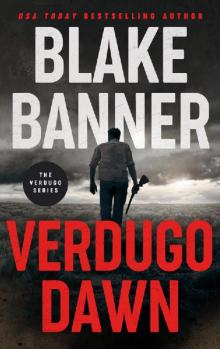 Verdugo Dawn
Verdugo Dawn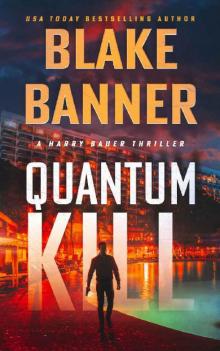 Quantum Kill (Cobra Book 4)
Quantum Kill (Cobra Book 4)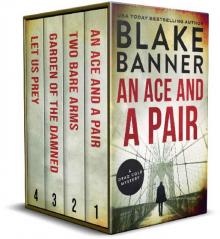 Dead Cold Mysteries Box Set #1: Books 1-4 (A Dead Cold Box Set)
Dead Cold Mysteries Box Set #1: Books 1-4 (A Dead Cold Box Set)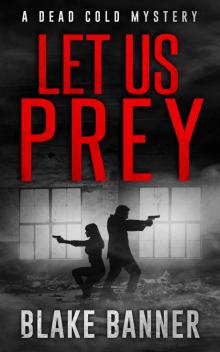 Let Us Prey
Let Us Prey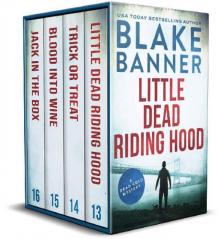 Dead Cold Mysteries Box Set #4: Books 13-16 (A Dead Cold Box Set)
Dead Cold Mysteries Box Set #4: Books 13-16 (A Dead Cold Box Set)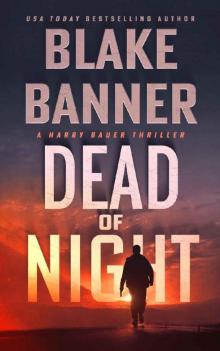 Dead of Night
Dead of Night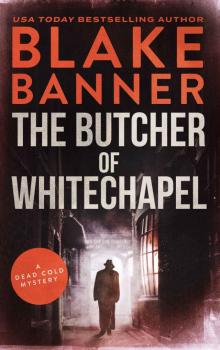 The Butcher of Whitechapel: Dead Cold Mystery 12
The Butcher of Whitechapel: Dead Cold Mystery 12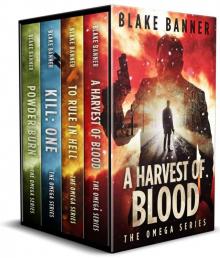 Omega Series Box Set 2
Omega Series Box Set 2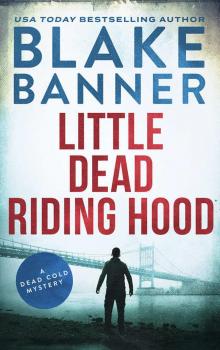 Little Dead Riding Hood: Dead Cold Mystery 13
Little Dead Riding Hood: Dead Cold Mystery 13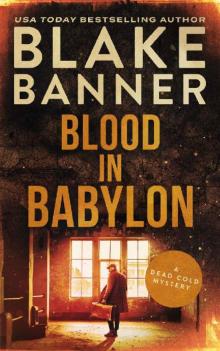 Blood in Babylon
Blood in Babylon Powder Burn
Powder Burn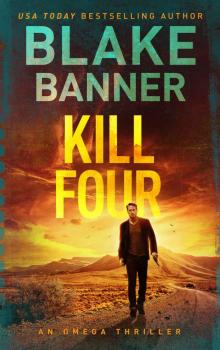 Kill Four
Kill Four Omega Series Box Set 3
Omega Series Box Set 3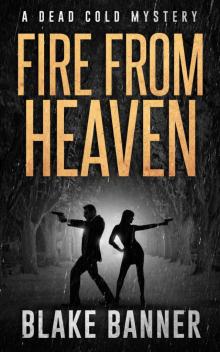 Fire From Heaven: Dead Cold Mystery 9
Fire From Heaven: Dead Cold Mystery 9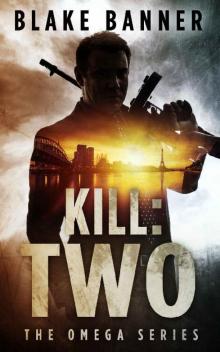 Kill - Two
Kill - Two Omega Series Box Set 1
Omega Series Box Set 1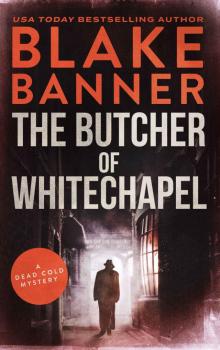 The Butcher of Whitechapel
The Butcher of Whitechapel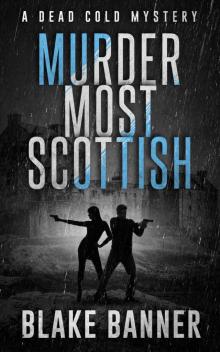 Murder Most Scottish
Murder Most Scottish Dead Cold Mystery Box Set 3
Dead Cold Mystery Box Set 3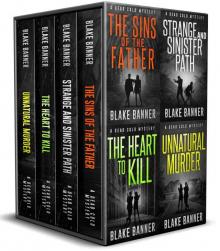 Dead Cold Mysteries Books 5-8
Dead Cold Mysteries Books 5-8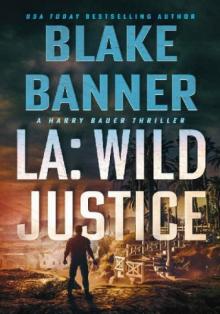 LA
LA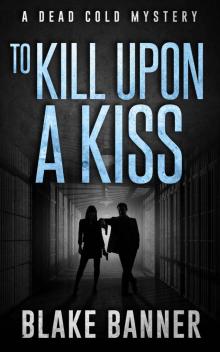 To Kill Upon A Kiss: Dead Cold Mystery 10
To Kill Upon A Kiss: Dead Cold Mystery 10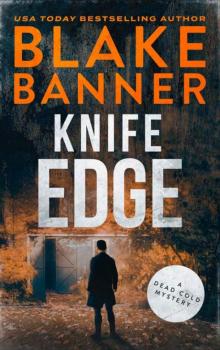 Knife Edge (A Dead Cold Mystery Book 27)
Knife Edge (A Dead Cold Mystery Book 27)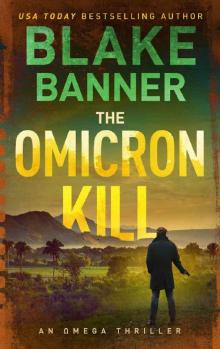 The Omicron Kill - An Omega Thriller (Omega Series Book 11)
The Omicron Kill - An Omega Thriller (Omega Series Book 11)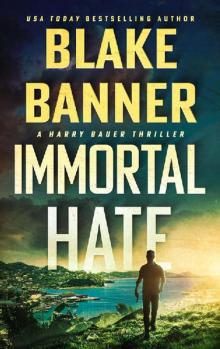 Immortal Hate (Harry Bauer Book 5)
Immortal Hate (Harry Bauer Book 5)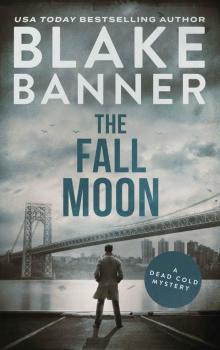 The Fall Moon
The Fall Moon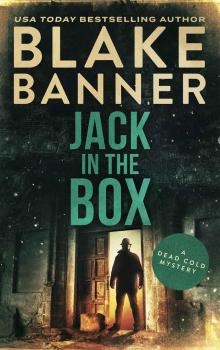 Jack in the Box
Jack in the Box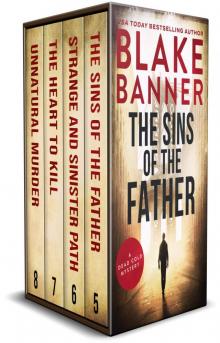 Dead Cold Mystery Box Set 2
Dead Cold Mystery Box Set 2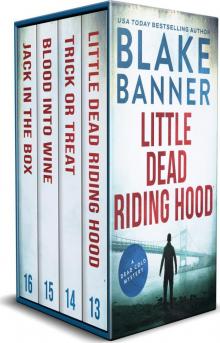 Dead Cold Mystery Box Set 4
Dead Cold Mystery Box Set 4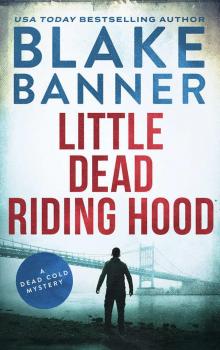 Little Dead Riding Hood
Little Dead Riding Hood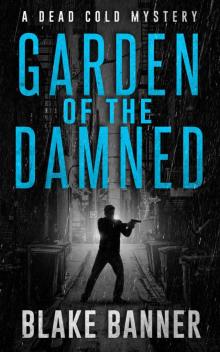 Gardened of the Damned
Gardened of the Damned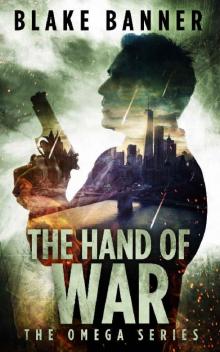 The Hand of War
The Hand of War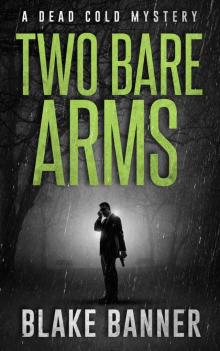 Two Bare Arms
Two Bare Arms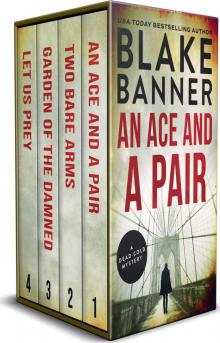 Dead Cold Mystery Box Set 1
Dead Cold Mystery Box Set 1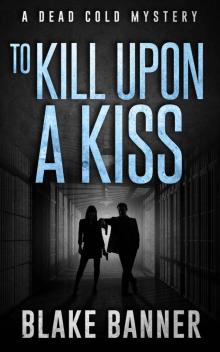 To Kill Upon A Kiss
To Kill Upon A Kiss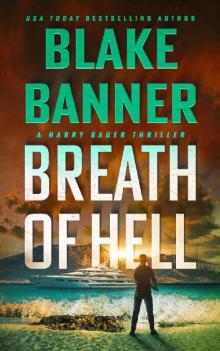 Breath of Hell (Harry Bauer Book 8)
Breath of Hell (Harry Bauer Book 8)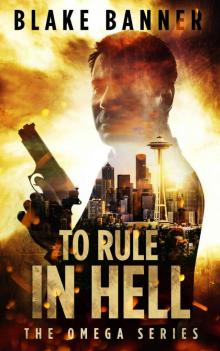 To Rule in Hell
To Rule in Hell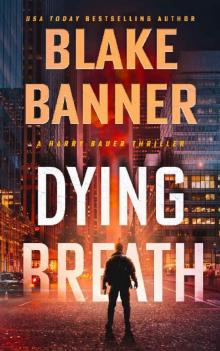 Dying Breath (Cobra Book 2)
Dying Breath (Cobra Book 2)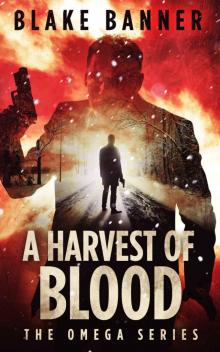 A Harvest of Blood - An Action Thriller Novel (Omega Series Book 5)
A Harvest of Blood - An Action Thriller Novel (Omega Series Book 5)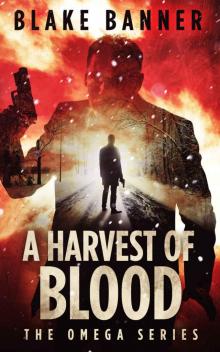 A Harvest of Blood - An Action Thriller Novel
A Harvest of Blood - An Action Thriller Novel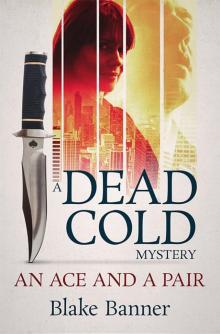 Ace and A Pair: A Dead Cold Mystery (Dead Cold Mysteries Book 1)
Ace and A Pair: A Dead Cold Mystery (Dead Cold Mysteries Book 1) Omega Series Box Set 3: Books 8-10
Omega Series Box Set 3: Books 8-10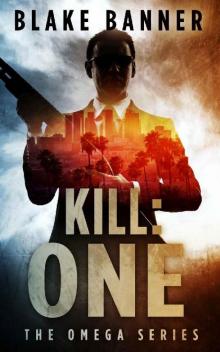 Kill One_An Action Thriller Novel
Kill One_An Action Thriller Novel The Storm
The Storm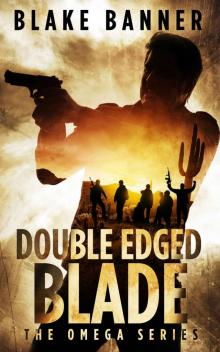 Double Edged Blade
Double Edged Blade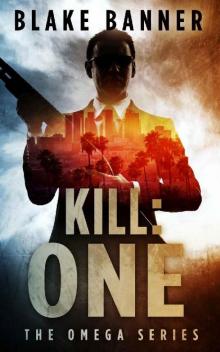 Kill: One - An Action Thriller Novel (Omega Series Book 7)
Kill: One - An Action Thriller Novel (Omega Series Book 7)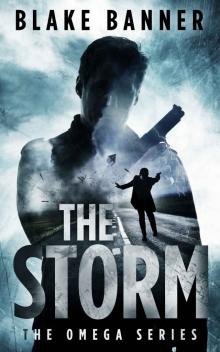 The Storm - An Action Thriller Novel (Omega Series Book 3)
The Storm - An Action Thriller Novel (Omega Series Book 3)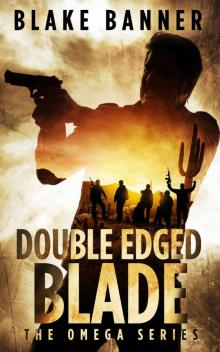 Double Edged Blade - An Action Thriller Novel (Omega Series Book 2)
Double Edged Blade - An Action Thriller Novel (Omega Series Book 2)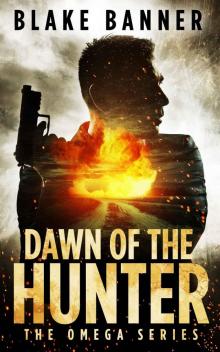 Dawn of the Hunter
Dawn of the Hunter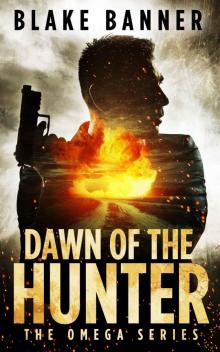 Dawn of the Hunter - An Action Thriller Novel (Omega Series Book 1)
Dawn of the Hunter - An Action Thriller Novel (Omega Series Book 1)